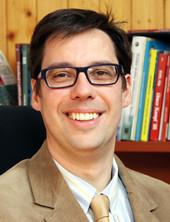Neighbours Drifting Apart? Poland, Germany and Challenges for the EU - Biuro Fundacji Polska
Konferencja
Szczegóły
The meeting will be held in English
Media representatives are kindly requested to register via media online registration
Those wishing to attend are kindly requested to confirm by 10 November 2015 via regular online registration
Over the last two decades, Poland and Germany have developed a close network of economic and political cooperation. EU membership and sound economic policies in both countries have created a solid base to progress in their mutual relations. This affinity, while drawing the two countries closer, has also highlighted their points of divergence, which extend to a fore in a time of crisis. The seminar, co-hosted by a Polish and a German think tank, will bring together experts from both countries to discuss controversial points such as the deepening of economic integration, the Transatlantic Trade and Investment Partnership (TTIP) and the question of refugees and immigrants in Europe. Discussion will focus on similarities and differences between Poland’s and Germany’s respective approaches to these areas, will provide a better understanding of their structural and political rationale, and will formulate a mutually beneficial agenda for the two neighbours.
PROGRAMME
09.00-09-10 Welcoming Remarks
Sebastian Plociennik, The Polish Institute of International Affairs
Matthias Schäfer, Konrad Adenauer Stiftung, Berlin
09.10-10.00 Keynote speech:
Rafał Trzaskowski, State Secretary for European Affairs, Ministry of Foreign Affairs, (tbc)
10.00-11.15 Panel 1. Deepening Economic Integration in Europe: Perspectives from Poland and Germany
As a reaction to the severe crises in the Eurozone, Europe has taken new steps toward economic coordination, and further integration is highly probable—as many new statements and memoranda suggest. While Poland is not a member of the Eurozone, it still tries to stay “in the game”, and Germany needs new allies to promote its preferences. In this context, it is worth querying the closeness of German and Polish interests and priorities in areas like monetary and fiscal stability, financial transfers, fiscal union and common government. This panel will set the groundwork for discussion on German and Polish perspectives on the deepening of European economic integration.
Panelists:
Bodo Herzog, Reutlingen University
Rafał Antczak, Deloitte
Moderator: Wawrzyniec Smoczyński, Polityka Insight
11.15-11.30 Coffee Break
11.30-12.45 Panel 2. The Transatlantic Trade and Investment Partnership: Between Polish Enthusiasm and German Scepticism
The historic Transatlantic trade deal between the United States and the EU, the TTIP, has been a major challenge for the European Union. While a common economic platform can strengthen the West and boost economic growth, Europeans are not unanimous on the distribution of advantages and costs the partnership offers. This panel will address Poland’s and Germany’s motivations for entering the TTIP along with threats and challenges—like the protection of investors or consumers—provoking dispute and protest in their respective societies.
Panelists:
Cvetelina Todorova, Konrad Adenauer Stiftung, Berlin
Tomasz Kalinowski, University of Gdańsk
Bartłomiej Nowak, Vistula University (tbc)
Moderator: Andreas Bielig, Warsaw School of Economics
12.45-14.00 Lunch break
14.00-15.15 Panel 3. Struggling for a Joint Approach in Immigration Policy. How do Poland’s and Germany’s Visions Differ?
The refugee crisis in summer 2015 revealed significant differences between Germany and its Eastern neighbours, including Poland, on European immigration. Perception of benefits and risks, experience in integration of foreigners and respective economic capacities are all potential flash points for political argument among members of the European Union. This panel will discuss solutions to the crisis to account for Germany’s and Poland’s objectives, while also creating long-term, sustainable policy for the refugee and immigration issues on the EU level.
Panelists:
Nico Lange, Konrad Adenauer Stiftung, Berlin
Patrycja Matusz-Protasiewicz, the University of Wrocław
Piotr Sadowski, Polish Ministry of the Interior, Poland
Moderator: Patryk Kugiel, The Polish Institute of International Affairs
15.15-15.45 Closing Remarks




